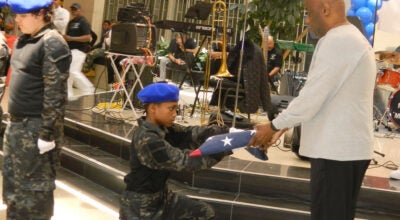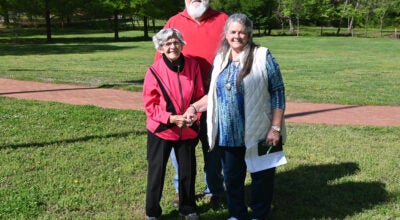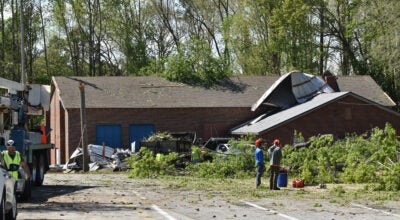Habitat for Humanity promotes stewardship
Published 12:00 am Tuesday, June 14, 2011
Center for the Environment
Habitat for Humanity is known throughout the country as a Christian housing ministry that builds homes with low-income families. What people may not know, however, is that Habitat’s ReStores, which provide funding for that effort, are a model of environmental stewardship.
“Environmental stewardship is an easy enhancement to our mission, as it would be to any enterprise,” says Coleman Emerson, executive director of Habitat for Humanity of Rowan County. “We recycle because it is the right thing to do to further help people and prevent waste.”
During the ReStore’s first year of operation in Salisbury, it has kept 320 tons of material out of the Rowan County landfill. For every dollar of donated material the ReStore sells, Habitat estimates that 1.3 pounds of material is diverted from the landfill.
“This amazing statistic is a fine example of recycling and adaptive use,” Emerson says. “We have a wonderful story of straightforward, intentional and practical environmental stewardship.”
Habitat Restore
Building
Even its building at 1707 S. Main St. in Salisbury is an example of reuse. “We chose not to build a building but rather to re-purpose an existing one,” says Elizabeth Brady, director of Restore operations. “We are very proud of taking an abandoned building and turning it into the anchor retail store of South Main Street.”
Brady, who has a background in retailing, is clearly in her element. “I like helping people,” she says. “I like saving the environment, so this is just a great fit for me.”
The Restore accepts construction items — everything from bathtubs and sinks to plumbing and electrical supplies. Architectural salvage like mantels and banisters are popular items, and appliances — those that work and those that don’t — are part of the store’s inventory. Appliances that no longer work are taken to a scrap yard where they are disassembled and recycled.
Computer and other technology items go to Students in Training in Spencer, an enterprise that guides high school students as they refurbish computers or take them apart and recycle the various metals. “We keep all that out of the landfill by passing the items along to them,” Brady says.
The store accepts used autos and even houses. “A donor who gave us a van, which we sold for $6,000, said she had such a positive experience that she would like to donate her former home to Habitat,” Brady says.
Furniture and housewares are popular with the ReStore’s customers as is its permanent Christmas Shop, which accepts artificial trees. “Unfortunately artificial trees are not biodegradable and cannot be recycled, so their disposal has a significant impact on the environment,” says science blogger Kimberly Crandell.
Habitat Restore
Salvage
“If disposed of in a landfill, artificial trees will never break down but rather permanently remain in landfills,” she says. “If disposed of by incineration, the PVC (polyvinyl chloride) in artificial trees will emit dioxins and other carcinogens into the air.”
About 90 percent of the products donated to the store are reused items but new items are also accepted. When Pleasant Papers in Salisbury closed earlier this year, owner Judy Isenhour donated her inventory to the ReStore. “We priced it at half to a third of her retail, and it flew out of here,” Brady says.
While the ReStore doesn’t accept clothing, sometimes it slips in. Children’s clothing goes to the Department of Social Services for children in foster care. Adult clothing that the DSS can’t use goes to the Salvation Army.
Brady is so environmentally conscious that she puts items in a free bin outside the store if she can’t sell them for at least 50 cents. “You’d be amazed at how many people come in daily to see what we have in that free bin,” she says.
The 20,000-square-foot store does a brisk business. An average of 123 people purchase items each day. About 40 volunteers supplement the three paid employees, helping at the cash register and in receiving and pricing.
The staff and volunteers go quietly about their business six days a week receiving items and then reselling or recycling them. Brady’s two passions – people and the environment – are the clear beneficiaries.
“The kernel of truth here — and probably the hope for the future of environmental stewardship — is that anyone, anywhere, can include stewardship in almost any enterprise in which they are involved,” Emerson says. “We are a shining example of that.
“Environmental stewardship needs to be removed from the list of trendy things to do,” he says. “Instead, it should be folded into the fabric of daily activity. That is what Habitat for Humanity of Rowan County has done.”




